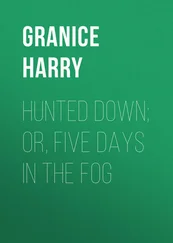Günther Bach - Arrows In The Fog
Здесь есть возможность читать онлайн «Günther Bach - Arrows In The Fog» — ознакомительный отрывок электронной книги совершенно бесплатно, а после прочтения отрывка купить полную версию. В некоторых случаях можно слушать аудио, скачать через торрент в формате fb2 и присутствует краткое содержание. Жанр: unrecognised, на английском языке. Описание произведения, (предисловие) а так же отзывы посетителей доступны на портале библиотеки ЛибКат.
- Название:Arrows In The Fog
- Автор:
- Жанр:
- Год:неизвестен
- ISBN:нет данных
- Рейтинг книги:5 / 5. Голосов: 1
-
Избранное:Добавить в избранное
- Отзывы:
-
Ваша оценка:
- 100
- 1
- 2
- 3
- 4
- 5
Arrows In The Fog: краткое содержание, описание и аннотация
Предлагаем к чтению аннотацию, описание, краткое содержание или предисловие (зависит от того, что написал сам автор книги «Arrows In The Fog»). Если вы не нашли необходимую информацию о книге — напишите в комментариях, мы постараемся отыскать её.
something that you merely know is there?
Rolf thinks that he hears Erhard’s voice saying:
“You must learn to see the invisible clearly!”
In this sequel of the archery novel «The horn of the hare» the story about the two friends continues.
15 years later: Germany is no longer divided and everything has changed, also Bärgers life and his shooting with the bow and arrow.
Arrows In The Fog — читать онлайн ознакомительный отрывок
Ниже представлен текст книги, разбитый по страницам. Система сохранения места последней прочитанной страницы, позволяет с удобством читать онлайн бесплатно книгу «Arrows In The Fog», без необходимости каждый раз заново искать на чём Вы остановились. Поставьте закладку, и сможете в любой момент перейти на страницу, на которой закончили чтение.
Интервал:
Закладка:
I’ll find out, said Bärger to himself, and raised the camera for the last time that day to find that he now could really capture all that he saw in the viewfinder. Then he walked quickly over to the group of four impatiently waiting for him.
“What was your name?” asked the investor with the Rolex when Bärger finally arrived at the group, sweaty and dirty.
“Bärger,” he said cheerfully, “Rolf Bärger.”
The investor said that he would be hearing from them and the two Daimlers drove off, one behind the other. Lothar said that they had still more to do, and the municipal councilor repeated that nobody, but really nobody, was interested in the cooling towers. That didn’t make a lot of sense, thought Bärger, but he preferred to keep that to himself.
He looked over at Lothar who shook his head unhappily, and then with a decisive “Well, let’s go!” settled himself behind the wheel and started the engine.
It would seem that the conference hadn’t been a real success, but Bärger wasn’t sure if Lothar’s bad mood was due to his unplanned detour to the cooling towers or to the result of the negotiations. He thought it best not to ask, and waited until Lothar himself began to talk about it.
“What did you think of that guy?” was Lothar’s first question after a while. He could only mean the investor.
“What should I think of a man I met today for the first time, and didn’t see for more than five minutes?” asked Bärger.
“But I suppose you’re right—somehow they’re all the same, developers as well as investors. You can never shake the feeling that they are playing poker and take great care never to reveal their real intentions. What is truly remarkable about them is that the clichés which describe them are mostly correct. What happened this time?”
“He is interested in the reactor chamber and the administration building, but naturally won’t say for what, and only wants a small piece of the land. He also wants a new evaluation of possible contamination where the reactor used to be. That’s really where the deal is going to fall through. I would like to know what it would cost to tear that down.”
“So, it’s another dud.”
Bärger looked out of the car window. The exit from the autobahn was already posted. This area was outside the usual ring development, but close to the autobahn – a strong plus.
How did that motto go that they used to recite? For real estate, there were three important things: first, - location; second – location; and third – location. What did they really have in mind here?
Bärger remembered his first job after the Berlin wall had come down, with a company which had emerged from one of the branches of the architectural institute and was looking for a leading architect. That had been a remarkably unstable and insecure period. You were foreign and felt foreign in what used to be familiar surroundings. Then he was introduced, to something that, against his will, he was forced to adopt as a principle of his professional life: mistrust, including the acceptance of the mistrust of others. That had been painful right from the start. Since he left school, he had regarded a trusting relationship between contractor and architect as an understood and unconditional basis for cooperation. He had believed that a building assignment could only be successfully carried out on such a basis. Things had been so different then, that often, words failed him in the company of his contractors.
As an architect, he found himself forced into the role of an unnecessary and far too expensive specialist, whose signature and stamp on various forms and papers were still required in order to obtain the necessary construction permits. He hadn’t been on a single job where he knew how his building would eventually look, not even the color of the glazed bricks nor the shape of the window latches.
After initial attempts to exercise influence on professional and site related questions, Bärger had given up trying to change impressions taken from magazines and catalogs.
It was tiresome enough to have to explain the relevant ordinances of the building code as requirements for a construction permit and to work them into the plans. It was especially costly when the role of the contractor became an object of contention between a married couple. He remembered the conversion of a small single-family house- one floor with an extended roof – for which he had finally prepared eight different plans, which really did differ substantially from one another. But except for this exploration of the possibilities for altering such a little house, the expenditure in relation to the pay had been remarkably high. Even after the agreement of his two contractors on the last version, they had changed it yet again, although he had already pointed out that doing so would void the already settled contract and the schedule. Bärger supposed that the head of construction had recognized this situation and made clever use of it.
No, it didn’t bother him anymore when someone accused him of – how nicely they phrased it – taking advantage of the situation. Once, as an aside during a conference, Bärger had joked to a colleague in the construction office that he was easily bribable, but unfortunately so far no one had taken advantage of it. But his colleague was taken aback, and evidently considered the subject as an unsuitable topic for conversation.
Mistrust, then, mistrust on both sides had become the basis for his conduct. But Bärger found that you had to mistrust that basis as well. Perhaps because you couldn’t exclude in advance the possibility that someone might honestly mean what he said.
While he was thinking, the car had gone a long way down the autobahn toward Berlin.
“Have you thought about it yet?” Lothar asked.
“Not yet,” said Bärger, who knew what he meant. But there was a connection between what had been going through his head and why he had given up archery.
“It’s just that I would like to try it again. I only worked as a designer those last years because I had had a snoot full of construction. Or no, not really construction – of planning construction with a colleague who was a ‘State Leader,’ who was always a comrade and, therefore, always knew infallibly what was right and what was wrong, regardless of the subject. But you know that just as well as I do!”
Lothar sat, relaxed behind the wheel and listened. Now he nodded in agreement but wouldn’t drop the subject.
“Didn’t you have time for it any more?”
Once more, Bärger thought for a while.
‘Well,” he finally confessed, “it took me a long time to learn the rules of the new game . Showing up at work every day with a tie was the least of it. To always keep my office door open to the corridor, to only run in the corridor and to work overtime on principle, was part of it. But I could never get used to the expressions: ‘It doesn’t pay!’ or ‘We’re working on it!’, and I rapidly grew to hate them. They’re the capitalist version of our, ‘It’s running its socialistic course’, which I found just as rotten.”
Suddenly he realized.
“You know what?” said Bärger, “I never saw even one of them again. For over ten years I never saw a single one of the people I used to train with.”
After a while, he added, “And the man I learned the most from disappeared a long time ago.”
Erhard, thought Bärger, and the memory of a Baltic island inseparably bound to the bow and arrow, struck him with painful clarity. But he hadn’t gotten rid of his bow, although some people had been very eager to buy it. He had taken it with him on two moves, carefully packed and securely stowed.
Why?
Could he still draw it to the anchor point?
What happens to a bow when it is no longer shot? Would it break, or he could he once again become one with that piece of enchanted wood which took on a life of its own in his hand?
Читать дальшеИнтервал:
Закладка:
Похожие книги на «Arrows In The Fog»
Представляем Вашему вниманию похожие книги на «Arrows In The Fog» списком для выбора. Мы отобрали схожую по названию и смыслу литературу в надежде предоставить читателям больше вариантов отыскать новые, интересные, ещё непрочитанные произведения.
Обсуждение, отзывы о книге «Arrows In The Fog» и просто собственные мнения читателей. Оставьте ваши комментарии, напишите, что Вы думаете о произведении, его смысле или главных героях. Укажите что конкретно понравилось, а что нет, и почему Вы так считаете.









